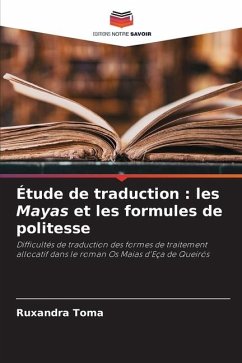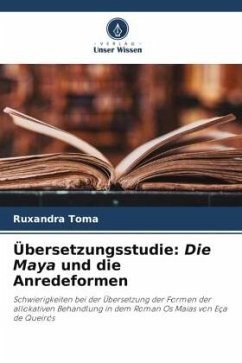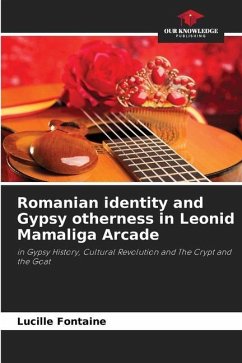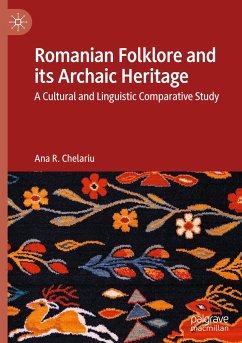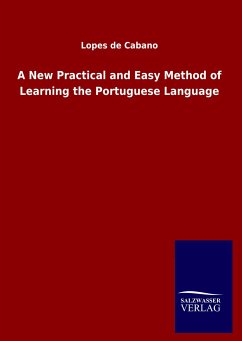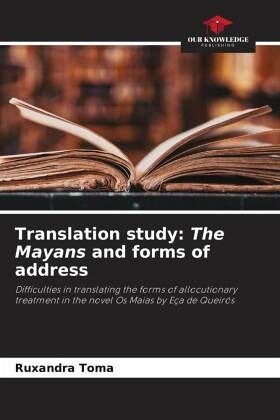
Translation study: The Mayans and forms of address
Difficulties in translating the forms of allocutionary treatment in the novel Os Maias by Eça de Queirós
Versandkostenfrei!
Versandfertig in 6-10 Tagen
40,99 €
inkl. MwSt.

PAYBACK Punkte
20 °P sammeln!
As languages formed and spoken on the edge of the ancient Roman Empire, Portuguese and Romanian have some common features (especially at the phonetic level) that distinguish them from other "sister" languages in the same family of Romance languages. But is it possible to talk about this similarity at all levels of the language? Could we consider that the system of forms of address represents one of these common features? Based on this question, this study aims to analyze the issue of forms of address in Portuguese and Romanian from a translational perspective and to find the main translation p...
As languages formed and spoken on the edge of the ancient Roman Empire, Portuguese and Romanian have some common features (especially at the phonetic level) that distinguish them from other "sister" languages in the same family of Romance languages. But is it possible to talk about this similarity at all levels of the language? Could we consider that the system of forms of address represents one of these common features? Based on this question, this study aims to analyze the issue of forms of address in Portuguese and Romanian from a translational perspective and to find the main translation problems they pose, as well as their solutions.



